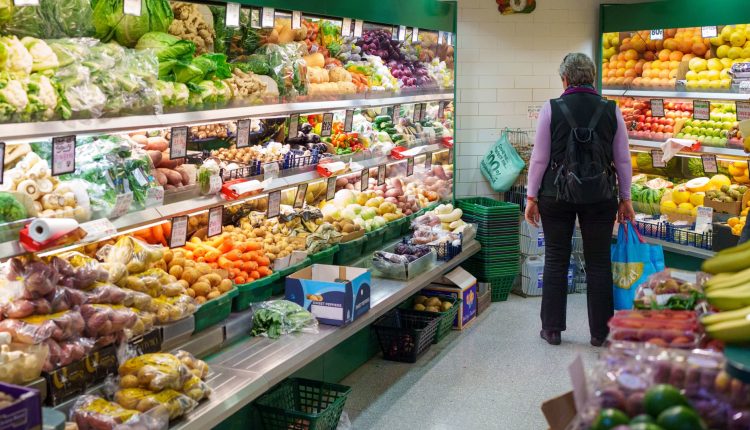A shopper browses fruit and vegetables for sale at an indoor market in Sheffield, UK. The OECD recently predicted that the UK will experience the highest inflation among all advanced economies this year.
Bloomberg | Bloomberg | Getty Images
U.K. inflation came in at 6.7% in August, below expectations and down slightly from the previous month.
On a monthly basis, the headline consumer price index (CPI) rose by 0.3%.
Economists polled by Reuters expected the headline figure to come in at 7% annually and up 0.7% month-on-month amid a slight uptick in prices at the pump. July saw a 6.8% annual rise and a 0.4% month-on-month decline.
“The largest downward contributions to the monthly change in both CPIH and CPI annual rates came from food, where prices rose by less in August 2023 than a year ago, and accommodation services, where prices can be volatile and fell in August 2023,” the Office for National Statistics said.
“Rising prices for motor fuel led to the largest upward contribution to the change in the annual rates.”
Core CPI — which excludes volatile food, energy, alcohol and tobacco prices — came in at 6.2% in the 12 months to the end of August, down from 6.9% in July. The goods rate rose slightly from 6.1% to 6.3% but was more than offset by the services rate slowing significantly from 7.4% to 6.8%.
The Bank of England will announce its next monetary policy decision on Thursday as policymakers continue efforts to pull inflation back down towards the Bank’s 2% target.
The market has broadly priced in another 25-basis-point hike to interest rates, which would take the main bank rate to 5.5% — its highest level since December 2007.
Despite Wednesday’s downside inflation surprise, the market is still pricing around an 80% probability of this further hike, according to live LSEG swaps data.
Caroline Simmons, U.K. chief investment officer at UBS, told CNBC that the central bank will still most likely hike on Thursday.
“We do believe that’s going to be their last hike, however, because we do have these downward forces on inflation,” she added.
“I think the recent rise in the oil price made people nervous that the print this morning might not continue to fall, which is why people sort of had more upside risk to their numbers, but I think the general trend is down.”
Read the full article here

